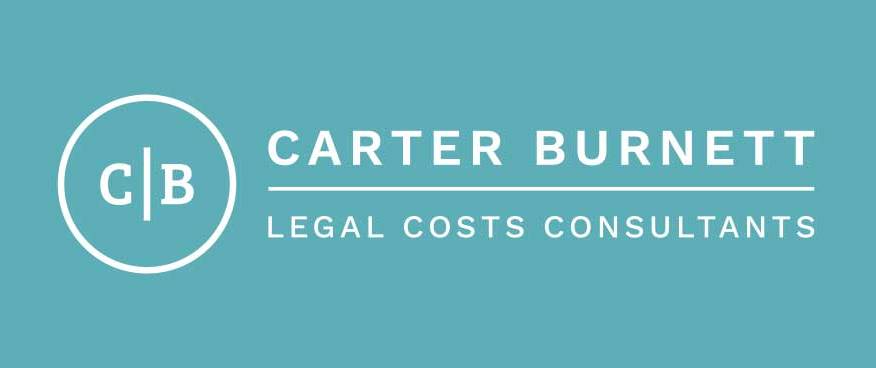The increasing value of interim payments on account of costs orders
Posted on 31st July 2021 at 13:19
By Lee Carter, Director and Costs Draftsman
Applications for interim payments on account of costs are an increasingly-important area for litigators (and subsequently their clients).
Whilst they are extremely common in high-value clinical negligence claims and personal injury cases, the Court will not make an award simply because a Claimant asks.
With the Coronavirus pandemic causing many law firms to feel the pinch, due to a slowdown in cases brought before the Courts, the phrase ‘cash flow is the lifeblood of business’ has never rung truer than in today’s legal profession.
As a result, Claimant solicitors are looking at interim payment of costs as an increasingly valuable way to secure much-needed financial relief.
What is an interim payment on account of costs?
Where the court has directed the losing party to make an order for the payment of costs, the successful party will NOT recover their costs until either both parties agree costs or upon the conclusion of the detailed assessment. Usually, this takes considerable time to achieve. Years in some instances. However, the general principle is that the successful party IS entitled to their costs, which should be paid without delay (as set out in Mars UK Ltd v Teknowledge, 1999). Moreover, as per CPR r44.2(8) “where the court orders a party to pay costs subject to detailed assessment, it will order that party to pay a reasonable sum on account of costs, unless there is good reason not to do so.”
How does an interim costs payment help?
Most of the Claimant law firms we work in partnership with view our expert Costs Consultants as a vital instrument in the battle to ensure positive cash flow.
With money coming in and the financial pressures off, they can be patient and fight to maximise the costs that their hard work deserves. This ensures they get paid the right amount for their skills and expertise – rather than settling early for less money.
With interest accruing at 8% on account of the outstanding balance (even after an interim payment has been made), the unsuccessful party is often keen to pay to stop their interest liability increasing. In our experience, this willingness to settle (but not overpay!) can help bring matters to a swift conclusion.
Does a Court have to issue interim costs certificates?
Thankfully, most Courts do now recognise the cashflow pressures associated with funding complex litigation.
Without interim payments on account of costs, specialist law firms would probably be put off of taking on complex cases. Such long-running, high-value claims often incur significant costs and disbursements for many years before being settled or heard at trial.
If the ability to secure interim payments did not exist, such complex litigation could put law firms under serious cash-flow pressures. This is especially true for those who represent claimants in ‘No Win, No Fee’ cases, where Legal Aid (which is capped) might only be available to fund the early part of the investigation.
Some larger law firms, such as those who specialise in clinical or medical negligence, may have hundreds of these cases being litigated at the same time. Once the Legal Aid budget has been utilised, they effectively self-fund the litigation on behalf of seriously-injured or vulnerable claimants.
Without vital interim costs payments, law firms like this would not be able to operate – denying access to justice for those people who need it most.
However, whilst there has to be a good reason NOT to make an interim payment order, NEVER assume a court will make an order for a reasonable sum on account.
The information we use when seeking an interim payment on account of costs
At Carter Burnett, our professional costs lawyers understand the pressures that Claimant solicitors are under during complex personal injury claims and medical negligence cases.
There are number of ways to maximise any interim payment ordered by the Court and the execution of a well-drafted budget and bill should never be underestimated in this regard.
The oft-cited case of Cleveland Bridge UK Ltd v Sarens (UK) Ltd [2018] EWHC 827 (TCC) (18 April 2018) saw the Court find that in a costs budgeted case, that ordering 90% of the budgeted costs and circa 70% of the incurred and non-budgeted costs. It’s plain to see that a well-prepared Costs Budget can pay dividends later on, not only serving to boost cash-flow but to also narrow the issues between the parties (as there is significantly less left to argue about).
High payments on account have consistently been provided by the Court though in the recent decision of Coloplast A/S v Salts Healthcare [2021] EWHC 107 (Pat) (26 January 2021) reinforces this, where a party within budget received an interim payment of 85%. More recently still, in Lifestyle Equities CV & Anor v Amazon UK Services Ltd & Ors [2021] EWHC 721 (Ch) (23 March 2021) where the Defendants were awarded 95% of their costs, the Court ordered an interim payment of 90% of 95% of the budgeted costs.
We believe that successfully securing an interim payment goes hand in hand with a good Costs Budget. Get your Budget right at the beginning and you’ll often feel the benefits all way through the case.
Should the Budget be approved, it’s far easier to obtain a higher interim payment because the Court has already approved those costs. It’s clear that the decisions of the Court support this preposition. A good budget will equivocate to a higher interim payment.
In the unreported case of A v B (25 July 2018) where the Costs Budget was significantly exceeded, the Court had to take a cautious approach about what would be allowed on assessment in order to determine the level of interim payment (even if there were good reasons to depart).
In A v B the Court determined a reasonable sum wouldn’t exceed 50% of the total costs claimed. This highlights the difference an inaccurate budget can make, not only in eventual recovery but in the level of interim payment which would be awarded.
Whilst interim payments are generally made on ‘settled’ cases, they can sometimes (in extreme circumstances) be secured for ongoing cases where liability has been agreed.
The unreported case of I v Hull & East Yorkshire NHS Trust (25 February 2019) offers a good insight into this process. The Court there ordered an interim payment for a case involving a Claimant who was catastrophically injured at birth. The Court stated that “failure to ensure adequate cash flow during the period of inevitable delay may lead to the perverse and undesirable consequence that solicitors are unwilling to take on case such as this at an early stage. It is everyone’s interests to determine liability as early as possible. But if the consequence is that solicitors must then fund the quantum investigation for 10 years or more, they may not be anxious to take the case on early” Mr Justice Pepperall reaffirmed the notion that an interim payment of costs is not confined to the end of a case or an application in R.G. Carter Projects Ltd v CUA Property Ltd [2020] EWHC 3417 (TCC).
The decision in Cobussen Principal Investment Holdings Ltd v Akbar & Ors [2020] EWHC 3628 (QB) (29 December 2020), however, highlights that where costs details are not provided in a clear and coherent matter (or indeed not at all) then this will impede the Court’s ability to determine the level of interim payment to award. In those circumstances the Court will adopt a cautious approach, ultimately resulting in a lower level of interim payment.
No matter what type of case you’re working on, we take care of the entire Costs Litigation process to secure the best possible outcome. We will ensure that the costs are presented in such a way, so as to support and maximise the level of any interim payment sought.
If you’d like more information about any of the areas outlined above, email info@carterburnett.co.uk or call 01482 534567 to discuss your budgeting needs.
Share this post:


